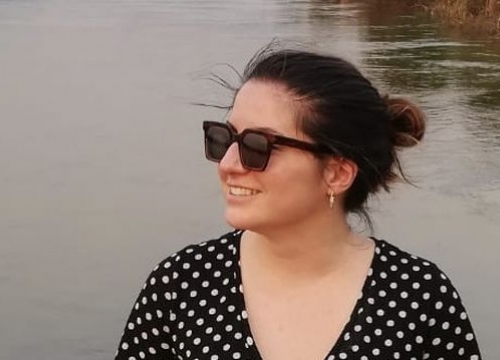MAS in Transitional Justice, Human Rights and the Rule of Law: What our Alumni Say
12 December 2019
Marie-Charlotte Beaudry graduated from the Master of Advanced Studies in Transitional Justice, Human Rights and the Rule of Law in 2018. She tells us about the programme and what it brought to her career.
About Me
My name is Marie-Charlotte Beaudry from Canada, Quebec. I am currently working as a UNV Human Rights Officer/Women Protection Advisor in conflict-related sexual violence at the United Nations Multidimensional Integrated Stabilization Mission in the Central African Republic (MINUSCA) in Bangui. I monitor, report and analyse human rights violation in the country, and more specifically on conflict-related sexual violence.
What are the Strengths of the Programme?
This programme is definitely excellent. I found particularly good having professors who are not only theoretical but also share their practical experiences on transitional justice and human rights, giving us a better portrait of the world we will enter after our studies. I would say as well that the proximity we had with our professors is very valuable and gave us more opportunities to develop our network. Finally, I did find that one of the most appreciated assets of the programme was indeed the students. Each participant brought a rich and varied experience that we shared throughout the year.
Your Best Memories of the Programme?
My best memory of the programme is definitely all the interesting, educated and motivated people that I met all year long through conferences, networking and social events. But one particular event will stay in my memory for a long time: the study trip in Nuremberg.
What Did it Bring to your Career?
First, the programme offered me the possibility to do a research internship at the NGO Redress. Second, the programme’s reputation and the vast knowledge and experience that I acquired as a student unquestionably helped me to get an associate position at the International Committee of the Red Cross right after graduation. Not only did my master’s degree at the Geneva Academy brought attention to the recruiters, but the theoretical and practical knowledge I acquired is still helping me to do my work today.
Do you use what you learned in class in your work?
I definitely use what I learn on a weekly basis, especially when it relates to victim-centred approaches, reparations to victims and notions of international criminal law.
Would you Recommend It?
Thanks to this master’s programme I could enter the professional international sphere and met wonderful people I am still in touch with today. I therefore obviously recommend it to anyone interested in working in post-conflict settings!








